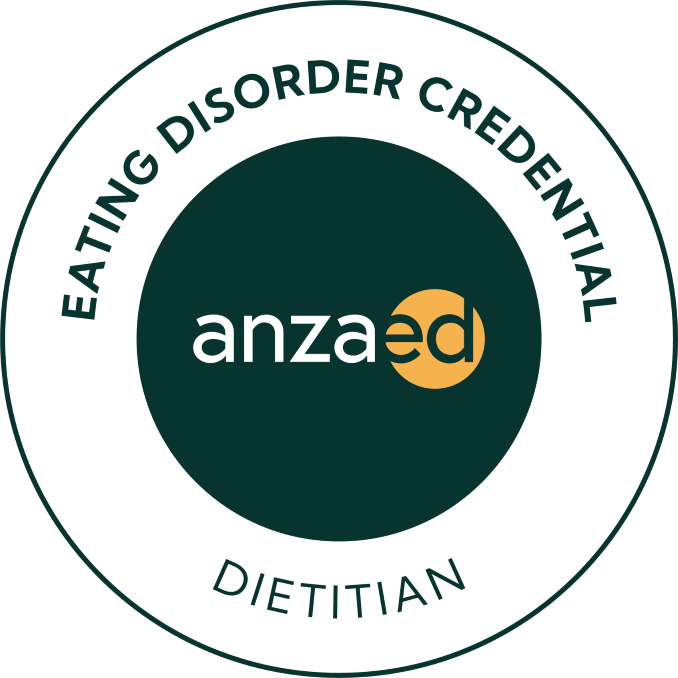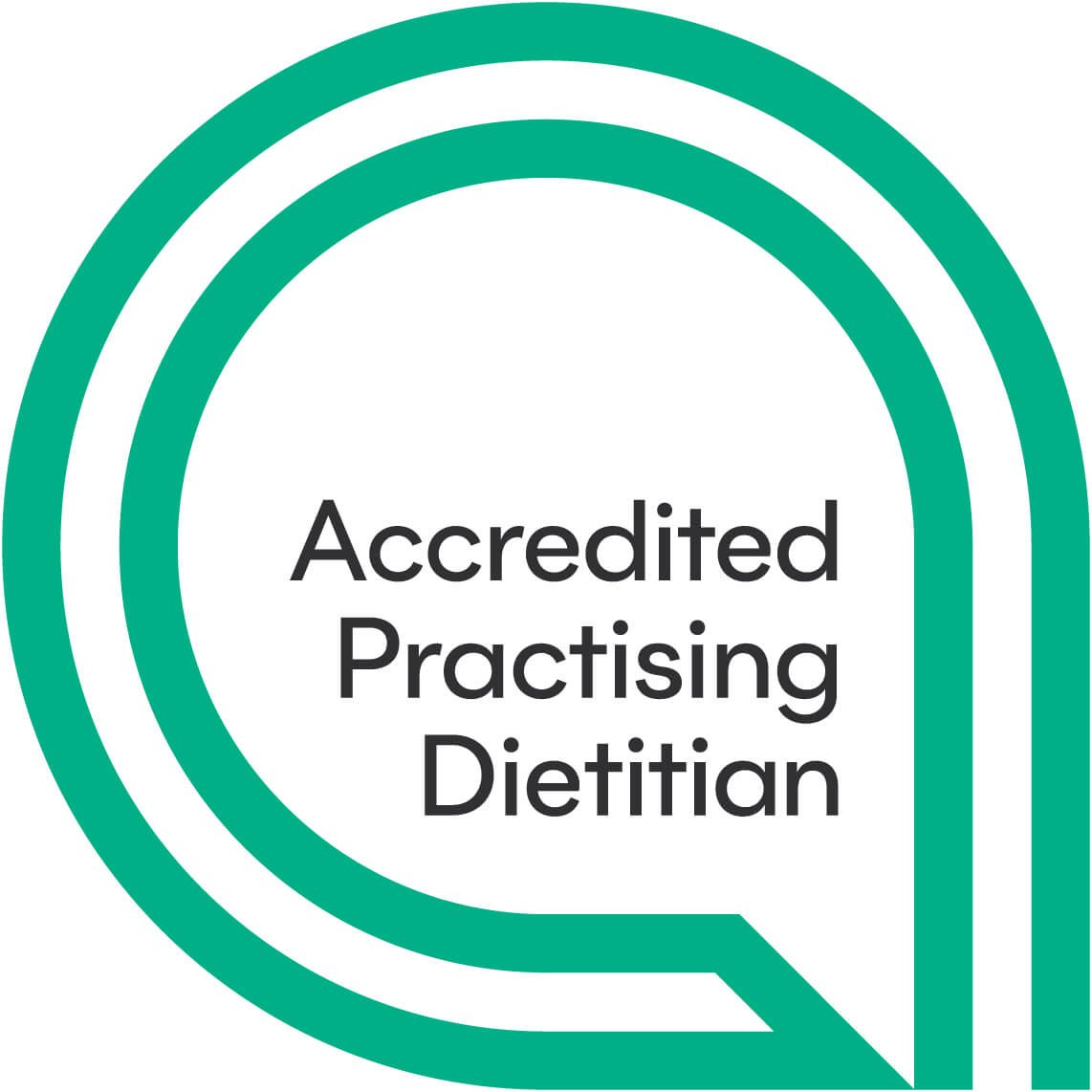Accredited Practising Dietitian & Nutritionist: Meet Emma
Hello & Welcome
Hi, I’m Emma (she/her). I’m a neurodivergent, weight-neutral, Accredited Practising Dietitian (APD) and Credentialled Eating Disorder Dietitian.
I believe everyone deserves the freedom to enjoy food and feel comfortable in their body. I’m committed to supporting people to improve their health and wellbeing without the noise of nutrition myths, misinformation, or diet culture.
In my approach, you won’t find restrictive diets, calorie counting, nutrition trends or rigid food rules, as these concepts are deeply rooted in diet culture and at odds with health and the scientific evidence. Instead, I recognise the importance of food in promoting health and its role in enriching meaningful moments in our lives.
I provide weight-neutral healthcare and am passionate about supporting people to break up with dieting and build a more positive, trusting relationship with food and their body.
My areas of interest include gastrointestinal nutrition, gut health, disordered eating, and eating disorders. I’ve completed additional training in these areas and stay up to date with current research.
When I’m not working as a dietitian, you’ll usually find me wandering local markets, experimenting in the kitchen, making art, op-shopping, altering clothes, visiting museums and galleries, sharing meals with friends, walking along the beach, dog sitting, paddleboarding, practising Pilates or yoga, hiking, or heading off on an adventure. I love to travel, and one of my favourite ways to experience a new place is through its markets and grocery stores. A wonderful way to connect with culture and discover the many weird and wonderful foods people enjoy around the world.
Living in Melbourne offers the incredible advantage of having diverse food experiences at our doorstep. We’re fortunate to reside in this vibrant city, where people from around the globe share their culinary traditions and delights with us.
Our Purpose
To support our clients to build a healthy relationship with food and their bodies through evidence-based, weight-inclusive nutrition care. Care that honours their biology, autonomy and unique life experiences, empowering them to care for their health and return to living their fullest lives
Our Hope for the Future
Our vision is a society that acknowledges health for its true complexity, rather than something defined by a single number on a scale or BMI chart. We are committed to shaping a future where dietitians' specialised expertise is truly recognised and appreciated, moving past the outdated notion that our role is limited to prescribing meal plans
-
I work from a Weight-Inclusive, Health at Every Size® (HAES®), and Non-Diet Approach.
The concepts of the Non-Diet Approach are accepting and embracing:
Body Cues (Appetite)
All Foods (Eating)
Body Shape (Body Image)
Joyful Movement (Fitness)
Non-Diet Nutrition (Food)
The Health at Every Size® principles:
Weight Inclusivity: Accept and respect the inherent diversity of body shapes and sizes and reject the idealising or pathologising of specific weights.
Health Enhancement: Support health policies that improve and equalise access to information and services, and personal practices that improve human well-being, including attention to individual physical, economic, social, spiritual, emotional, and other needs.
Respectful Care: Acknowledge our biases, and work to end weight discrimination, weight stigma, and weight bias. Provide information and services from an understanding that socio-economic status, race, gender, sexual orientation, age, and other identities impact weight stigma, and support environments that address these inequities.
Eating for Well-being: Promote flexible, individualized eating based on hunger, satiety, nutritional needs, and pleasure, rather than any externally regulated eating plan focused on weight control.
Life-Enhancing Movement: Support physical activities that allow people of all sizes, abilities, and interests to engage in enjoyable movement, to the degree that they choose.
-
Accredited Practising Dietitian (APD)
Master of Dietetic Practice, La Trobe University
Bachelor of Applied Science, La Trobe University
-
GLP-1s & Eating Disorders [ELL Education]
Compassionate Approaches to Eating Disorders in Higher Weight Bodies [ELL Education]
Eating Disorders for Dietitians [The Mindful Dietitian]
Nutrition and IBD for Dietitians [Gut Smart]
Supporting Safe and Effective Meals, NDIS Quality and Safety Commission
Supporting Effective Communication, NDIS Quality and Safety Commission
Introduction to Disability and Inclusion for Dietitians [DA CAL]
Low FODMAP Diet for IBS [Monash University]
Gastrointestinal Nutrition for Dietitians [DA]
The Essentials: Training Clinicians in Eating Disorders [InsideOut]
Dietitian Essentials: Treatment of Eating Disorders [InsideOut]
CDED Expert Training [Modulife]
-
Dietitians Australia, Accredited Practising Dietitian APD190848
ANZAED Eating Disorder Credentialled Dietitian
Dietitians Crohn’s and Colitis Australian Network (DECCAN)
Crohn’s and Colitis Australia
Dietitian Supervision Resources Australia (DSRA)
Accredited Practising Dietitian: Personalised Food & Health Advice
-
An Accredited Practising Dietitian (APD) is a university-qualified health professional who specialises in nutrition. In Australia, APDs are the only nutrition and dietetics professionals recognised by the Australian Government, Medicare, the Department of Veterans' Affairs, the National Disability Insurance Agency (NDIA), and most private health funds.
-
An APD’s specialised knowledge and evidence-based approach can provide the best possible guidance.
There are specific situations where seeking expert nutrition guidance is crucial. If you're dealing with a medical condition, a nutritional deficiency, or struggling to navigate conflicting nutrition advice, a dietitian can provide the support and guidance you need.
Medical Nutrition Therapy: If you have a medical condition like diabetes, Crohn's disease, ulcerative colitis, irritable bowel syndrome (IBS), coeliac disease, diverticular disease, high cholesterol, or high blood pressure, and need support and advice about foods for these conditions.
Vitamin or Mineral Deficiency: If you've been diagnosed with a nutritional deficiency or are worried, you're not getting enough nutrition from your diet.
Deciphering Diet Information: Understanding and navigating nutrition information can be empowering, especially when you're overwhelmed by conflicting advice and seeking evidence-based guidance.
Life-Stage Transitions: If you're undergoing life-stage changes like pregnancy, breastfeeding, or perimenopause and want nutrition support for your unique needs.
Weight Neutral: A weight-neutral approach can provide the support and understanding you need if you're stuck in the diet cycle and seeking a health-focused solution. Emma is an Accredited Practicing Dietitian; you can read more about the health conditions she works with here.
-
Dietitians Australia (DA) is the regulatory body for dietitians in Australia.




